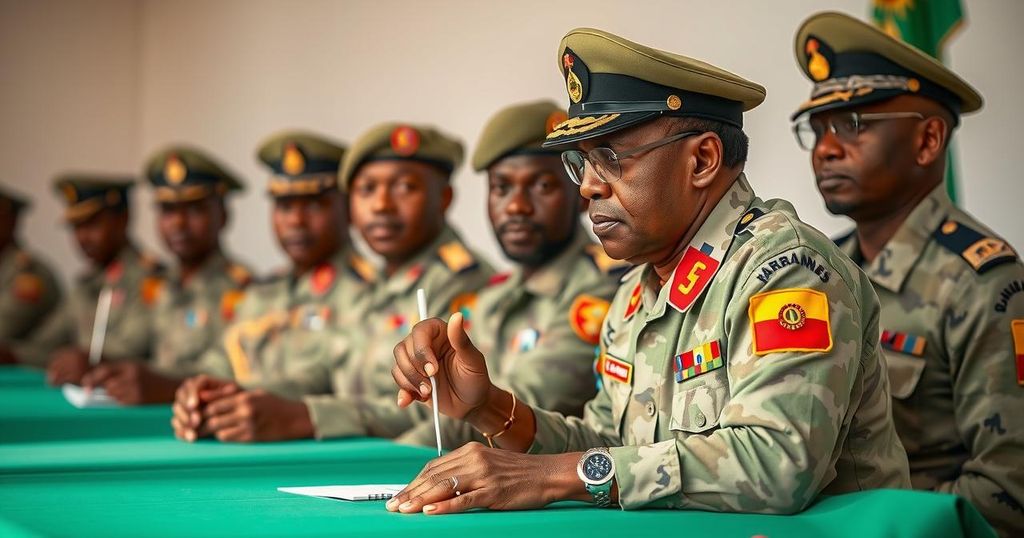Chad Votes in Critical Elections Amid Low Turnout and Opposition Boycotts
Chad conducted general elections, considered essential for ending military rule, with low voter turnout, reportedly at 38%. Opposition parties urged boycotts, claiming pre-arranged results favoring candidates aligned with President Mahamat Idriss Deby Itno. The electoral process faced scrutiny over missing ballots and voter skepticism, amid calls for change and significant local issues like climate change.
Chad held general elections on Sunday, regarded by the government as a vital step toward the restoration of democratic governance following three years of military rule. Despite the significance of the elections, voter turnout appeared dismally low, with reports indicating participation at approximately 38 percent as opposition parties had called for a boycott. Credited by the election management agency ANGE, figures suggested that apathy among voters, especially in affluent districts, was attributed to “cold weather.”
Opposition leaders, including Succes Masra of the Transformers party, claimed the electorate was responding to their call for a boycott, stating that the majority chose to abstain from voting due to predetermined election outcomes. This boycott potentially favors candidates associated with the ruling regime of President Mahamat Idriss Deby Itno, who ascended to power through military means in 2021 and subsequently faced criticism over the legitimacy of his prior electoral victory. Deby encouraged eligible citizens to participate in what he termed a “historic day” on social media, emphasizing the transformative potential of the elections.
While some citizens expressed skepticism over the voting process, citing a lack of genuine electoral competition, others participated in hopes of fundamental change in governance. Reports highlighted that soldiers, police officers, and nomadic groups had cast ballots on the preceding day for logistical convenience. Acknowledging the significance of these elections, representatives from various communities outlined pressing issues like climate change and livelihood improvements that the newly elected officials would need to address.
Despite logistical challenges, the election was monitored by approximately 100 foreign observers throughout the polling stations, which were open until late afternoon. Meanwhile, claims emerged from opposition groups about missing ballots, signaling ongoing tensions about electoral integrity amidst past accusations of unethical practices by the ruling party. All this unfolds in a context of increased violence from militant groups such as Boko Haram, challenges to military accords, and allegations of foreign intervention in regional conflicts.
Chad has experienced significant political turmoil in recent years, characterized by the transition from long-standing autocratic rule under the late Idriss Deby to a government led by his son, Mahamat Idriss Deby Itno. Following the elder Deby’s death in 2021, the military took control, leading to widespread calls for democratic reforms and elections. The general election aimed to establish a parliamentary system and combat criticisms regarding the transparency and legitimacy of governance amidst an environment marked by economic challenges and security threats.
The recent general elections in Chad showcased a critical juncture in the nation’s journey towards restoring democratic governance after years of military rule. However, the low turnout reflects deep-seated political disillusionment among the populace, exacerbated by opposition calls for a boycott. The onus now rests on the newly-elected officials to address urgent issues confronting the nation, including economic hardship and the impacts of climate change, all while respecting the democratic process.
Original Source: www.hudsonvalley360.com




Post Comment